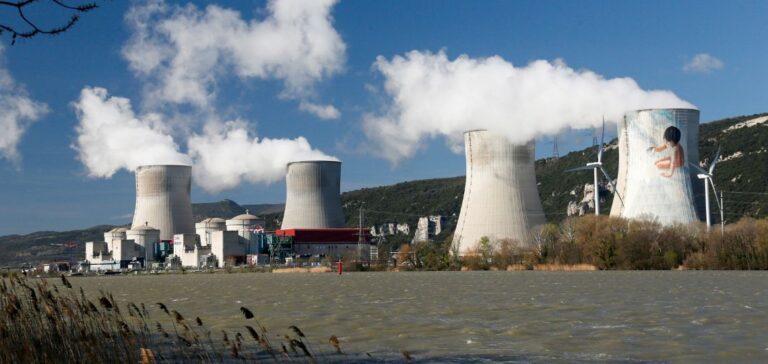The right-wing majority Senate on Tuesday gave wide approval to the nuclear stimulus bill to speed up the construction of new reactors, before final passage expected on May 16 in the National Assembly. The vote was acquired by 315 votes “for” and 13 “against”.
The ecologist group voted against, denouncing a “forced march”, “too expensive”, “dangerous” and “incompatible with the many consequences of global warming”. The CRCE group, with a Communist majority, although in favor of the construction of new reactors, abstained. Deputies and senators had reached an agreement last week in the joint committee (CMP) on this text carried by the Minister of Energy Transition Agnès Pannier-Runacher.
Technically, this bill simplifies procedures to make Emmanuel Macron’s promises to build six new EPR reactors by 2035, and to launch studies for eight more. It is limited to new facilities located on or near existing nuclear sites.
The Minister praised a text “major to build the energy independence of our country”, which will allow “to produce an abundant energy, competitive and decarbonized” according to her. On the calendar of EPROn Tuesday on CNews, she confirmed the goal of 2035-2037 for the commissioning of the first of these reactors: “it is 15 years from 2022 and we will try to gain two years on this schedule and then it is a reactor per year until 2050.
At the initiative of senators, the text blows up the objective of reducing to 50% the share of nuclear energy in the French electricity mix by 2035, a “lock” introduced under the presidency of François Hollande. It also increases the penalties for trespassing on the plants. As expected, parliamentarians did not reintroduce the controversial nuclear safety reform sought by the government.
But the executive still considers it necessary to merge the Institute for Radiation Protection and Nuclear Safety (IRSN), a technical expert, into the Nuclear Safety Authority(ASN), the power plants’ watchdog. “We will be very careful that a possible reform does not confuse responsibilities or destabilize competencies,” warned the LR president of the Senate Economic Affairs Committee, Sophie Primas.
In the CMP, the deputies and senators also specified that the construction of new reactors is not counted in the application of the rules of “zero net artificialization” (ZAN) of soils at the local and regional level at this stage.





















